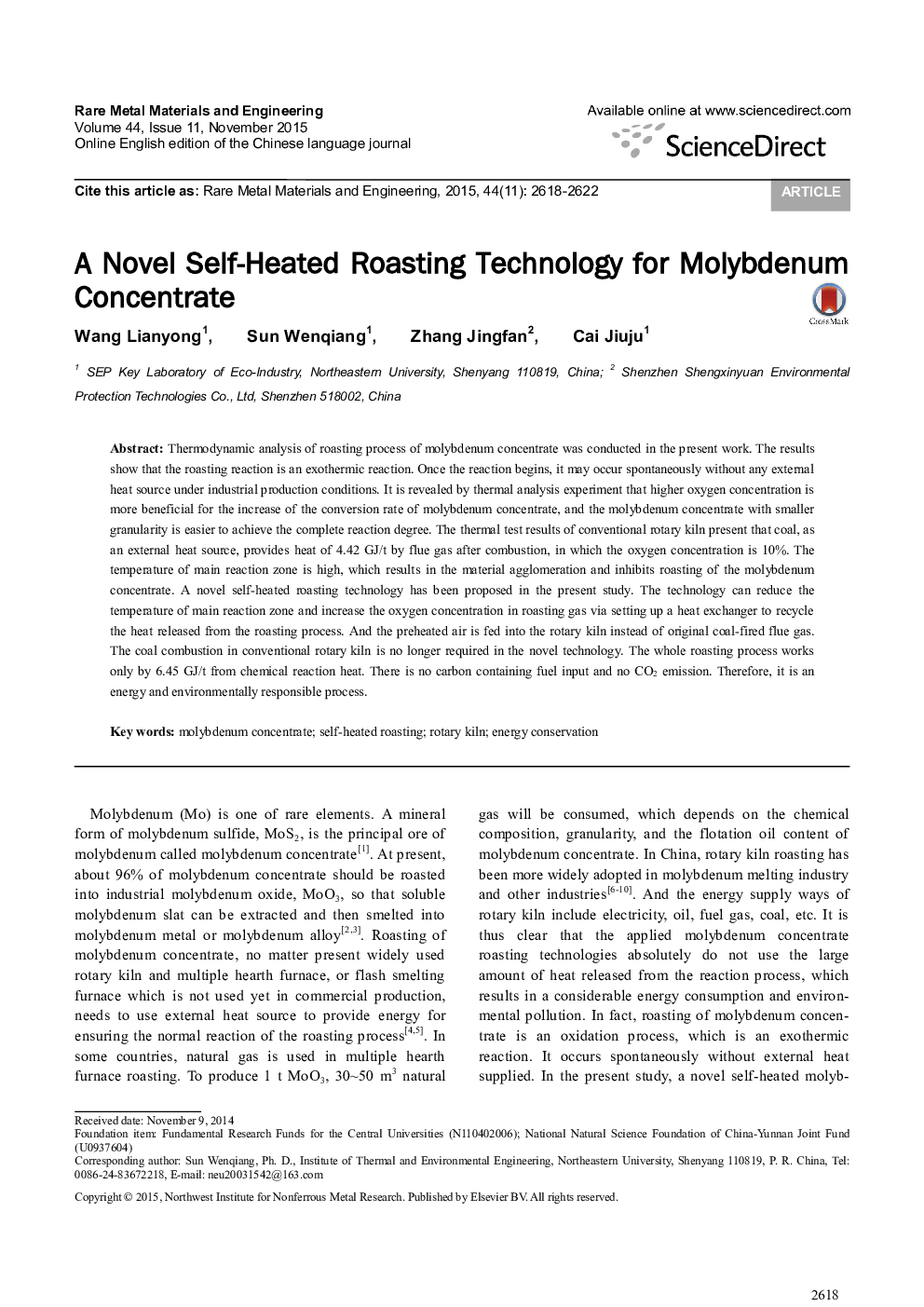| Article ID | Journal | Published Year | Pages | File Type |
|---|---|---|---|---|
| 814676 | Rare Metal Materials and Engineering | 2015 | 5 Pages |
Thermodynamic analysis of roasting process of molybdenum concentrate was conducted in the present work. The results show that the roasting reaction is an exothermic reaction. Once the reaction begins, it may occur spontaneously without any external heat source under industrial production conditions. It is revealed by thermal analysis experiment that higher oxygen concentration is more beneficial for the increase of the conversion rate of molybdenum concentrate, and the molybdenum concentrate with smaller granularity is easier to achieve the complete reaction degree. The thermal test results of conventional rotary kiln present that coal, as an external heat source, provides heat of 4.42 GJ/t by flue gas after combustion, in which the oxygen concentration is 10%. The temperature of main reaction zone is high, which results in the material agglomeration and inhibits roasting of the molybdenum concentrate. A novel self-heated roasting technology has been proposed in the present study. The technology can reduce the temperature of main reaction zone and increase the oxygen concentration in roasting gas via setting up a heat exchanger to recycle the heat released from the roasting process. And the preheated air is fed into the rotary kiln instead of original coal-fired flue gas. The coal combustion in conventional rotary kiln is no longer required in the novel technology. The whole roasting process works only by 6.45 GJ/t from chemical reaction heat. There is no carbon containing fuel input and no CO2 emission. Therefore, it is an energy and environmentally responsible process.
